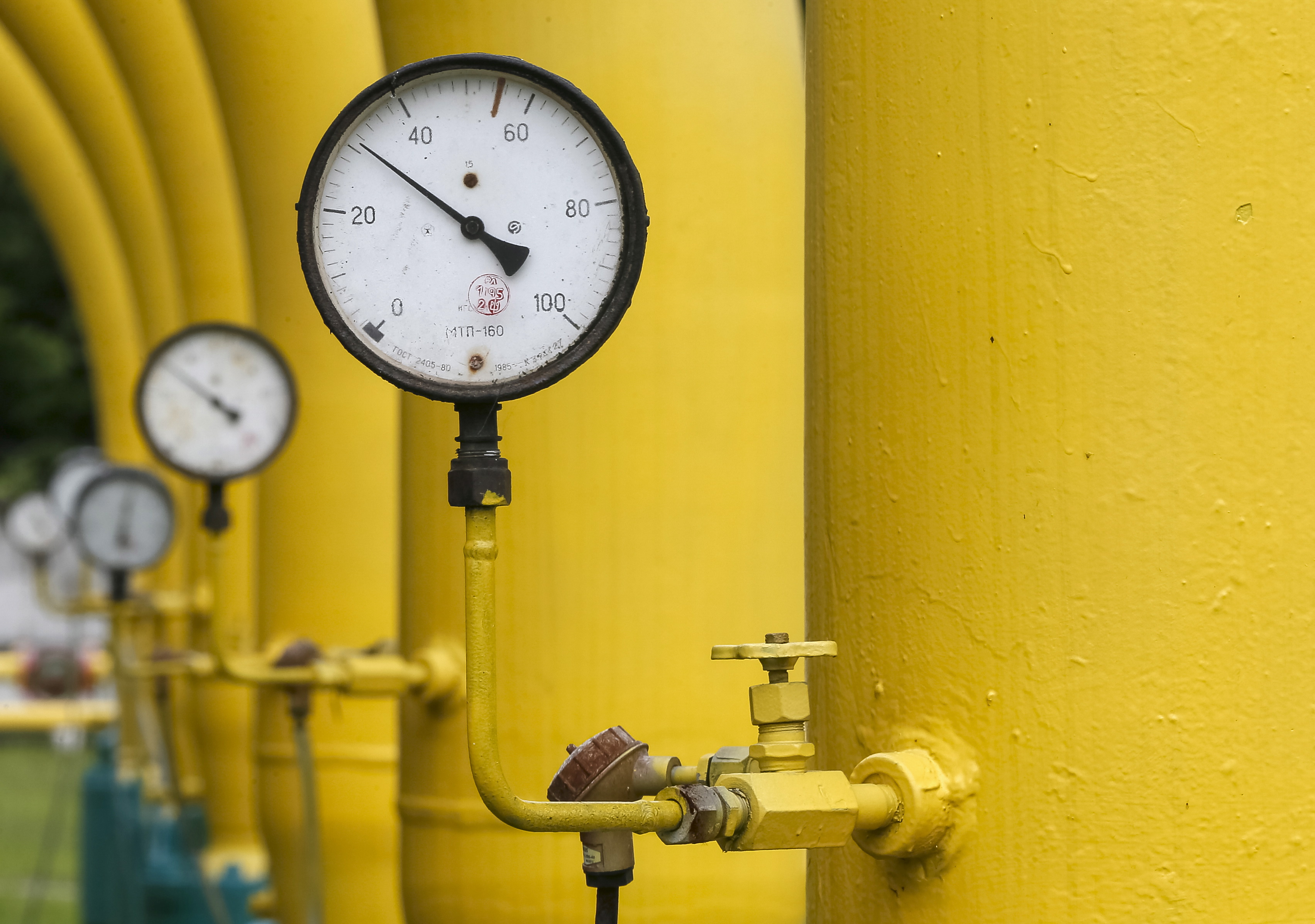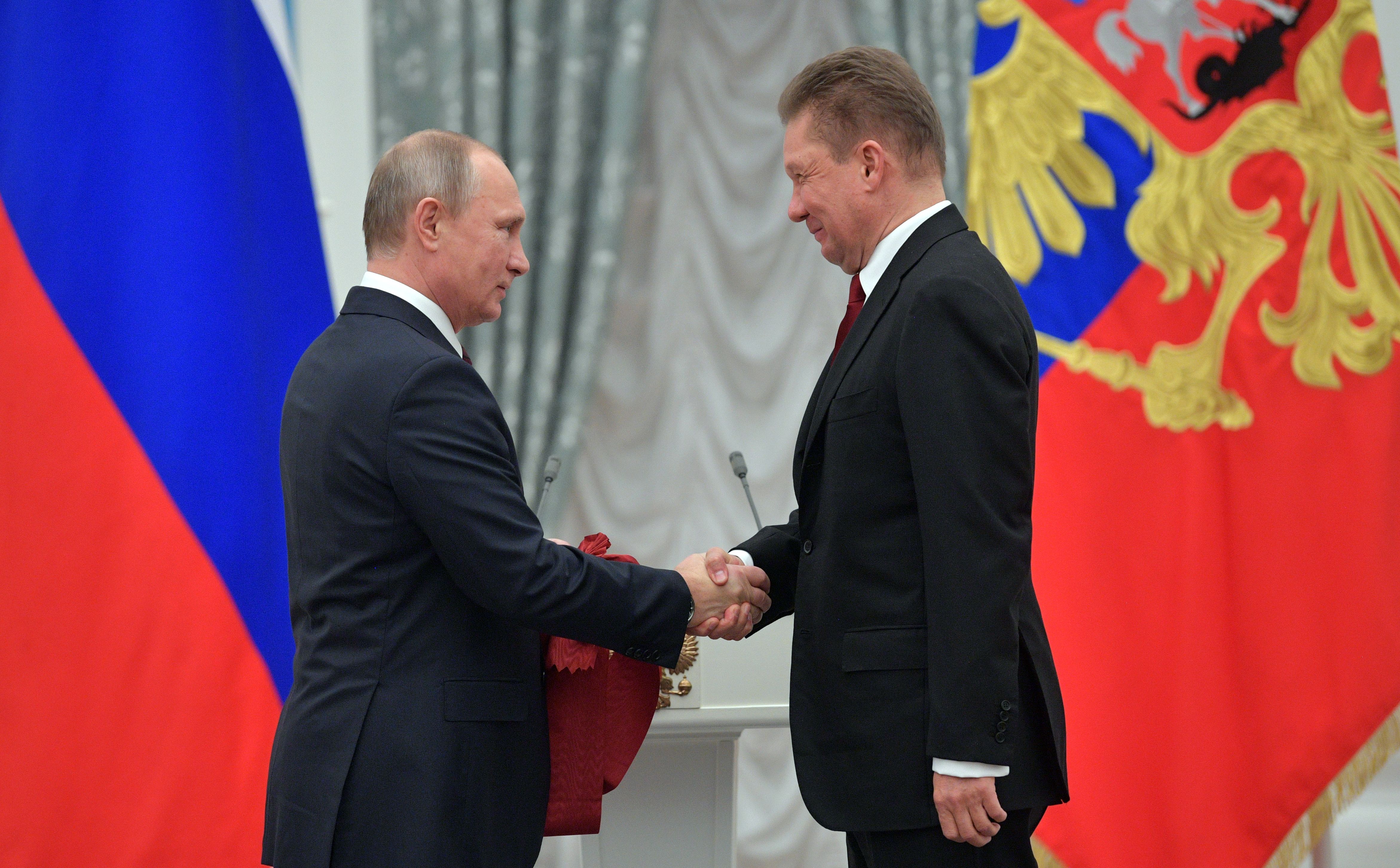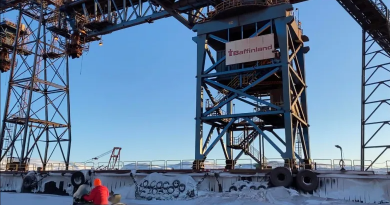Gazprom’s exports from Arctic reach record-high numbers

As Gazprom this months celebrates its 25-years anniversary, it can record a historical high in natural gas exports. In a meeting with President Putin last week, company CEO Aleksey Miller confirmed that exports in 2017 amounted to 194,4 billion cubic meters, the company’s biggest annual volume ever.
According to Miller, the 2017 result is 90 percent higher than the result in 1993, the year when Gazprom was privatised. The biggest part of the export growth – as much as 30 percent – has comes over the last three years, Miller told Putin.
The Russian natural gas now accounts for as much as 34,7 percent of the European market, the biggest share ever. And volumes are likely to continue to grow, Miller argues. With new export pipelines North Stream-2 and the TurkStream, more natural gas can be sold to European consumers.
The Arctic constitutes an increasingly important priority for Gazprom. In 2017, the company’s flagship project in the region, the Bovanenkovo field in the Yamal Peninsula, produced as much as 82,8 billion cubic meters of gas. And more is to come. By year 2020, the company intends to produce an annual of 115 billion cubic meters at the field, Prime reports
Yamal a priority for Gazprom
According to Aleksey Miller, the company’s so-called Yamal Center is becoming the most important priority for the company. Huge additional reserves are added to the resource portfolio. Only the regional Tambey fields hold an estimated 7,7 trillion cubic meters, Miller told the President.
Gazprom previously estimates its potential natural gas exports from Yamal to up to 360 billion cubic meters.
In 2017, the company’s total production amounted to 471 billion cubic meters.

Gazprom was originally established in 1989. It originates from the Soviet Ministry of Gas Industry, and became the Soviet Union’s first state run corporate enterprise. On 17th February 1993, Gazprom became a joint stock company. It is majority owned by the Russian government.
Related stories from around the North:
Canada: Arctic nickel, not oil, could soon power the world’s cars, Blog by Mia Bennett, Cryopolitics
Germany: Cheap oil from the Arctic? Fake news, says climate economist Kemfert, blog by Irene Quaile, Deutsche Welle
Norway: Dwindling interest in Norway’s Arctic oil raises many questions, The Independent Barents Observer
Russia: For Vladimir Putin, Russia’s prosperity will come from the Arctic, The Independent Barents Observer
Sweden: EU gives financial push to battery factory in Northern Sweden, The Independent Barents Observer
United States: Big questions emerge over $43 billion gas-export deal between Alaska and China, Alaska



